I generally really struggle with the 1970s in films. There was an awful lot of rubbish. Exceptions are such films as The Godfather, The Deer Hunter, Dog Day Afternoon, Jaws, The French Connection, The Sting, One Flew Over the Cuckoo’s Nest, and not forgetting Star Wars.
With 1976 there was the usual hard work to find quality. All the President’s Men was outstanding, but I’ll save that for another day. Reviewed below are three foreign productions …
- The first ever film of newly independent Suriname, Wan Pipel.
- A Turkish version of Hamlet, Kadin Hamlet.
- A Greek film which won every major award going at the Thesaloniki Film Festival that year, Happy Day.
All three can be hunted down on YouTube, and subtitles if required at subscene.com.
Wan Pipel (One People) [Suriname]
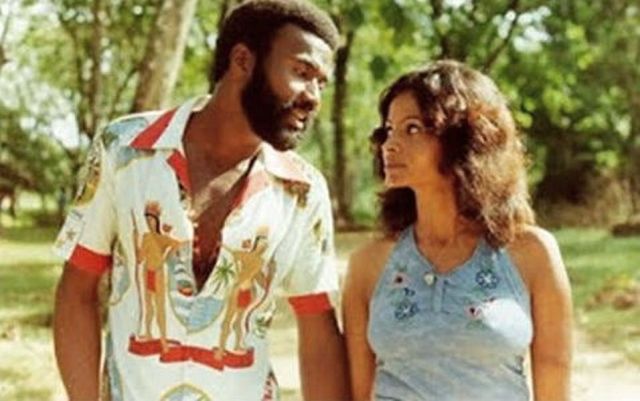
Director: Pim de la Parra Jr.
Cast: Borger Breeveld (Roy), Diana Panday (Rubia), Willeke van Ammelrooy (Karina), Emanuel van Gonter (Roy’s father).
Plot: A love triangle set amongst the tensions of ethnically diverse Suriname.

Paramaribo.
Review: This film was an eye-opener about a country of which I knew little – Suriname. The spoken language is Sranan (the everyday language of Suriname), with bits of English, Dutch and Hindustani thrown in. Subtitles definitely needed.
The film sought to highlight a major issue in the country – prejudice, intolerance and racist attitudes between the extraordinarily diverse ethnic communities there.
The central character is Roy (Borger Breeveld), who has flown from Holland to his homeland to visit his terminally ill mother. A Creole (Caribbean person of mixed Afro-European descent), he falls for a local Hindu girl (Diana Panday) causing great upset in both families. Then things get further complicated when his white girlfriend from university in Holland (Willeke vov Ammelrooy) unexpectedly arrives on the scene.
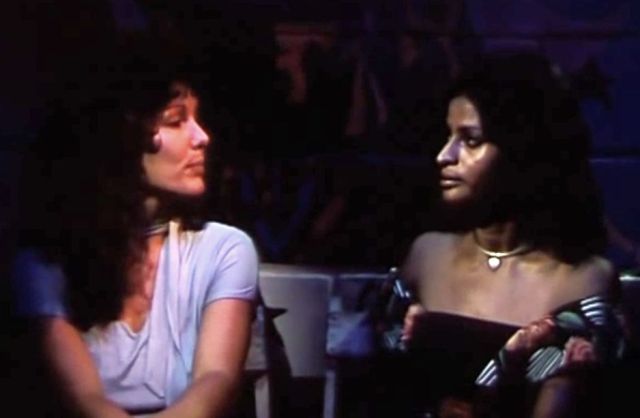
- Willeke von Ammelrooy & Diana Panday. Ammelrooy had a long acting career. Panday, however, found herself ostracised by her own community after the film was released, illustrating the very problems that the film sought to overcome. Never appearing on the big screen again, she decided to leave Suriname and lived elswhere for most of her life, dying, aged 68, only last year.
As a film it is a little patchy in quality, some times resembling a tourism advert and at others a political broadcast, although the central story of the love triangle involved is well-played. The moral message of the film is a little undermined by the fact that Roy comes over as a bit of a lothario, otherwise the film may have had greater credibility as a national statement in its call for inter-racial and inter-cultural tolerance. I’d recommend this as an introduction to life in Suriname, but couldn’t honestly list it as one of the best films I’ve ever seen.
Score: 4/10.
Kadin Hamlet (Female Hamlet) [Turkey]
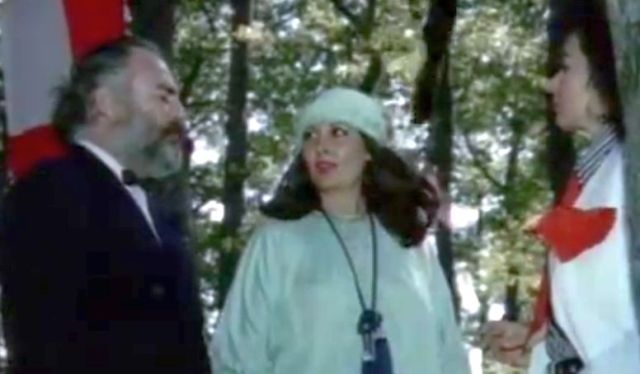
Reha Yurdakal, Sevda Ferdag and Fatma Girik.
Director: Metin Erksan.
Cast: Fatma Girik (Hamlet), Sevda Ferdag (Hamlet’s uncle), Reha Yurdakal (Hamlet’s mother).
Plot: Having discovered that her father was murdered by her uncle, Ms Hamlet sets out expose his guilt to others.
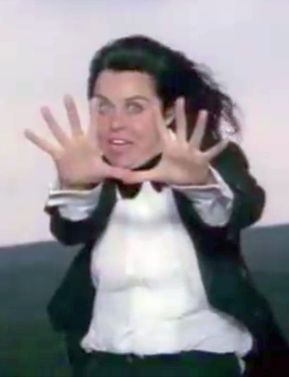 Review: A powerfully-delivered and often quirky piece, with Fatma Girik as an impressive and memorable Hamlet.
Review: A powerfully-delivered and often quirky piece, with Fatma Girik as an impressive and memorable Hamlet.
The story is set in the Turkish countryside in modern times. Girik plays the role very straight, with no special case being made as to why it is a female in the lead. Her passionate ‘to be or not to be‘ speech, delivered from a podium on a green hillside where she was conducting an imaginary orchestra immediately before, is a wonderful alternative to the usually quietly-spoken, self-conscious and gloomily-lit examples of other productions.
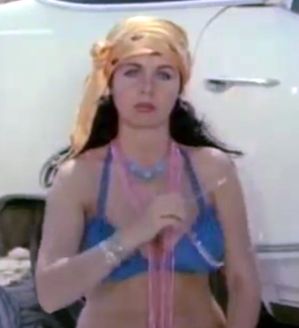 The visual effects are rather basic and the editing occasionally clumsy, but this does not detract from the general effectiveness of the piece.
The visual effects are rather basic and the editing occasionally clumsy, but this does not detract from the general effectiveness of the piece.
If one doesn’t mind the occasionally intrusive music score and exuberant 1970s dress sense and decor, then this is a refreshingly original interpretation of a play which, in spite of the beautiful poetry and challenging storyline, can be a bit of a dull affair.
Score: 6/10.
Happy Day (Χάππυ νταίη) [Greece]
Director: Pantelis Voulgaris.
Cast: No one memorable.
Plot: I’m not sure there was one.
Review: A difficulty in trying to fairly judge a film from another country is that one might not pick up on various cultural references that might be obvious to a native. I’ve no doubt that this was the case with Happy Day, but the parts I could understand made no real sense either.
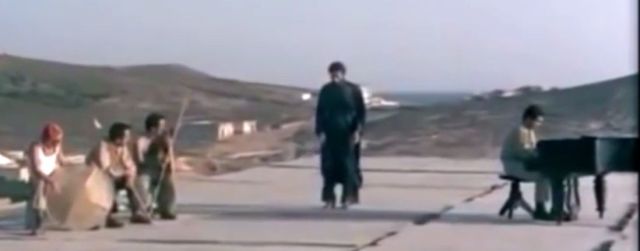
Men dressed like ancient greek warriors, priest doing a dance, man at a grand piano. I have absolutely no idea what is going on here.
The film depicts daily life in an imaginary prison camp. There’s no real plot and no characters to empathise with. The arbitrary cruelty and absurdities of a dictatorial regime are depicted, although thankfully nothing graphic or seriously offensive. The whole film came over as a rather unimaginative exercise in the ‘theatre of the absurd‘, with sometimes very long scenes with very little happening.
Made and released in 1976, Happy Day won several awards at the Thessaloniki (the major city of northern Greece) film festival that year, but none anywhere else. This was two years after the fall of the harsh military dictatorship which had ruled the country for seven years, so any film which ridiculed the military may have won approval, regardless of real quality. All the same, without any but the sketchiest of storylines, unremarkable camerawork and uninvolving performances, I afraid it was lost on me.
Score: 1/10.
So, the best film of 1976 is …
KADIN HAMELT (6/10)
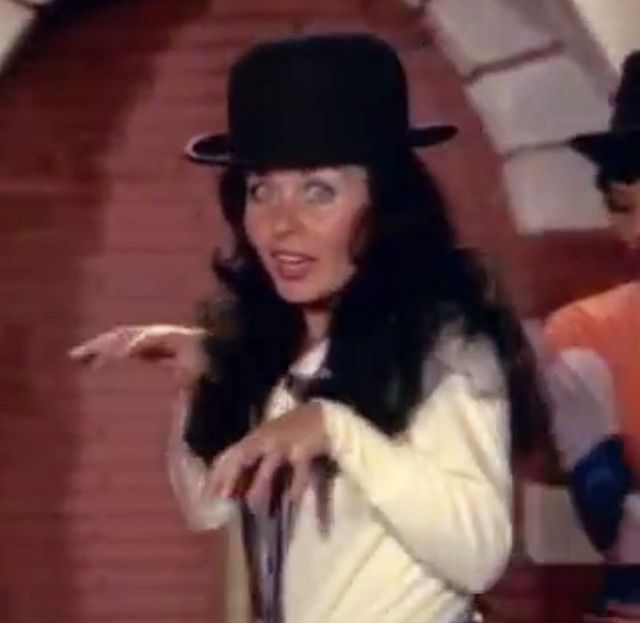
… because of the unusual, entertaining and at times downright wacky interpretation of this Shaksperian classic.
The next The Best Film of … will be the year 1935.


